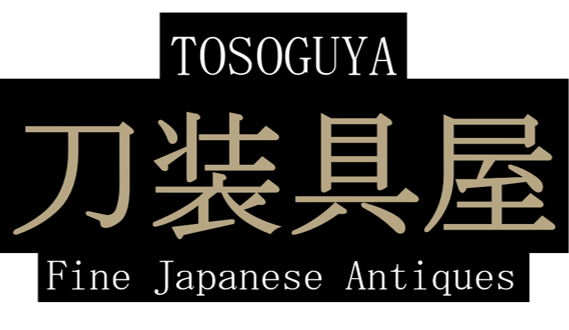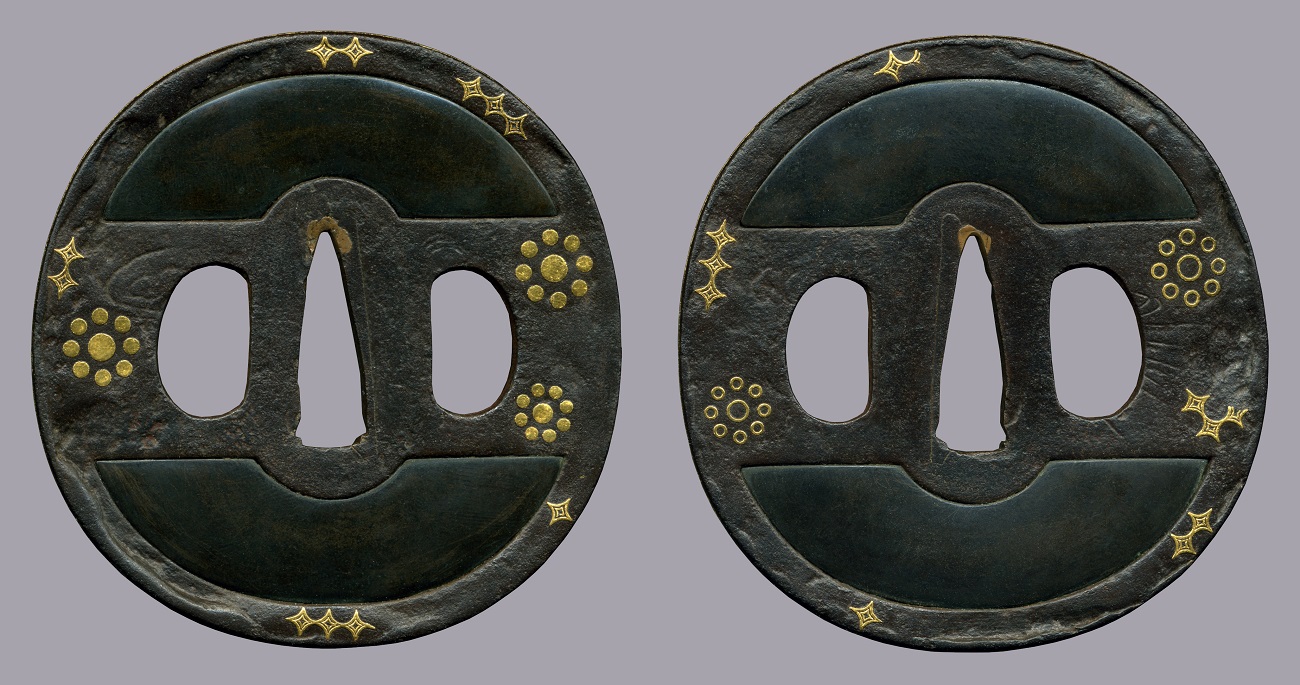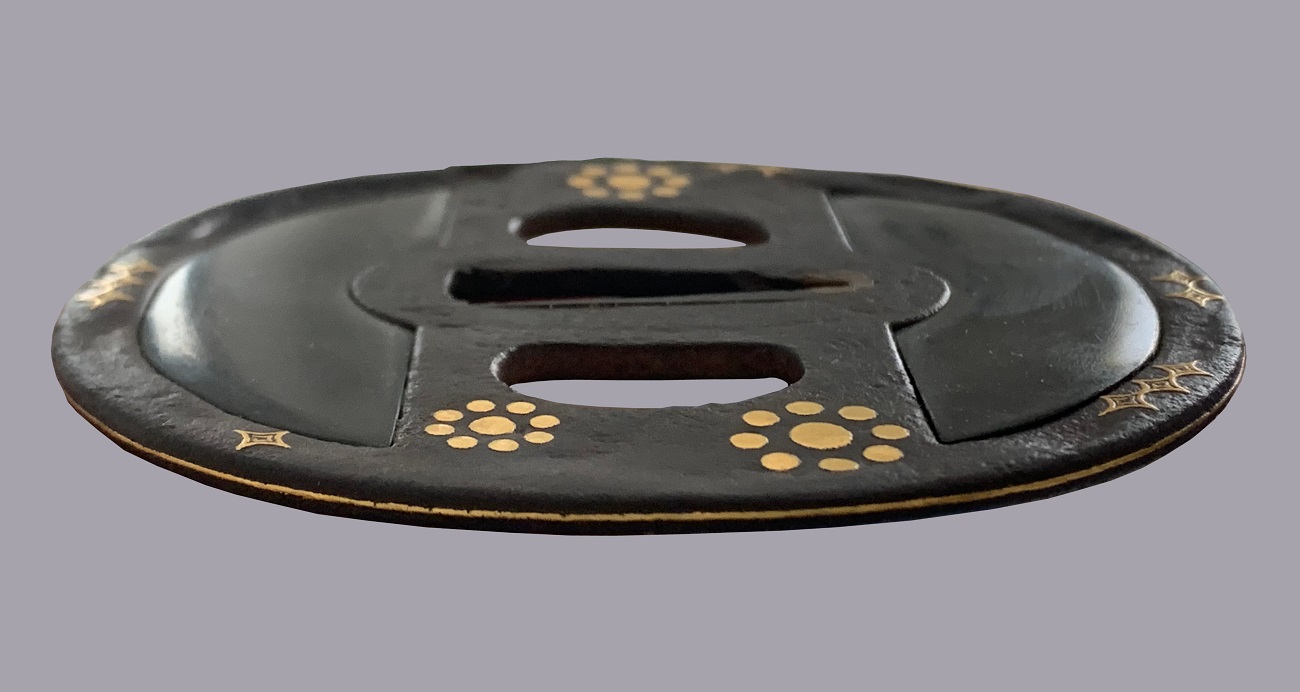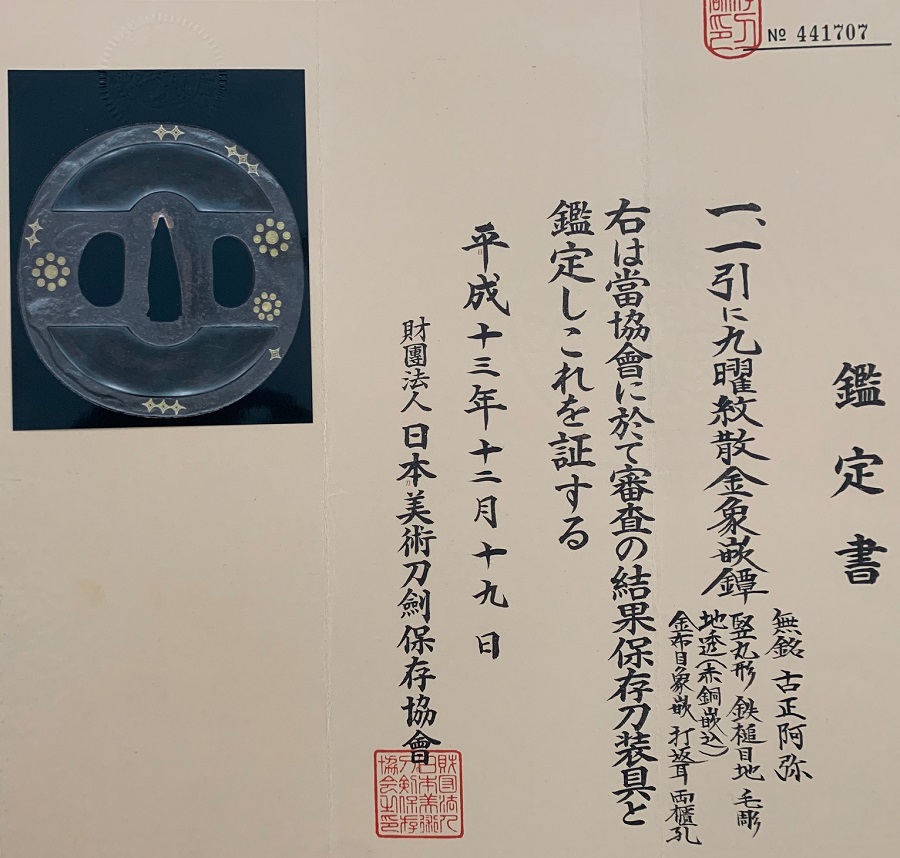

Elegant iron Umetada school tsuba (埋忠鐔) of a stylized single bar (pull) design. The bar motif is central, and defined by two crescent sukashi elements, which have been filled with large shakudō inserts (赤銅嵌込) . The plate is treated with tsuchime hammering pattern (鉄槌目地) , which has created a gentle uneven surface, and accentuated the rim edge in places. The area around the seppadai has some kebori (毛彫) carving, but due to the addition of the two large matching hitsuana (両櫃孔), the design motif has been cut-out and it is unclear. This tsuba has been remounted several times in its life, as evidenced by not only the hitsuana additions, but also a subtle iron insert offsetting the nakago-ana. I think that due to the relative thinness of the iron plate, an iron insert was deemed most structurally / aesthetically suitable, rather than extensive hammering around the nakago-ana. The work was early, as the patina is completely even witht he rest of the plate.
Gold inlay or kin zōgan (金象嵌) is applied to the plate in several ways. The rim of the tsuba has a thin gold wire inlay, termed a wari-ire-fukurin (割入れ覆輪). This style of fine fukurin was often employed by Umetada school workers. Gold inlay is also applied to the plate, in the form of 9-circle mon (Kuyō-mon 九曜紋), and obscure repeating geometric patterns. There is no meaningful loss of inlay (inlay is purposely terminated against some hammered areas), and the plate is in overall excellent shape.
This tsuba comes with NBTHK Hozon papers to Ko-Shōami (古正阿弥). This is an unfortunate and poor attribution by the NBTHK (though increasingly common), and underscores the importance of being informed as a collector. This tsuba has many of the hallmarks of the Umetada group, and should have been attributed as such.
Translation of the NBTHK Hozon paper description follows:
一引に 九曜紋散 金象嵌鐔 (ichibiki
ni kuyō-monsan kinzōgan tsuba)
無銘 古正阿弥 (Mumei Ko-Shōami)
竪丸形 鉄槌目地 毛彫 (Tatemaru-gata
tetsu tsuchime-ji kebori)
地透 赤銅嵌込 (Ji-sukashi
shakudō hamekomi)
金布目象嵌 打返耳 両櫃孔 (Kin nunome zōgan uchikaeshi-mimi
ryō-hitsuana)
Heisei 30th year (2019) December 29th
Published: Kokusai Tosogu Kai Exhibition Catalogue 2017
Measurements: 8.2cm x 7.9cm x 0.3cm
Early Edo Period (江戸時代前期), 17th century.
SOLD


